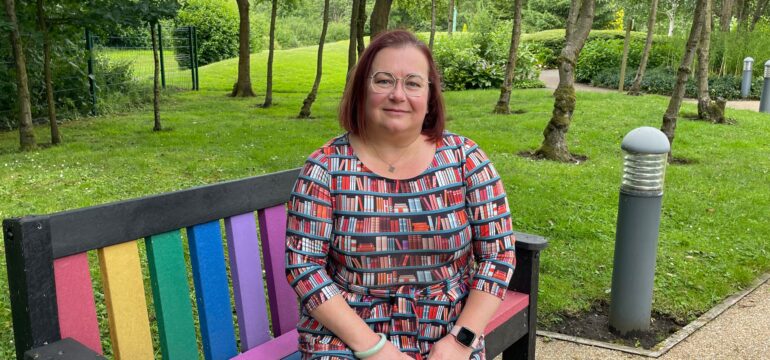Dr Anna Murray - Medical Director, Wigan & Leigh Hospice

People will often look surprised when I tell them that I’m a doctor in a hospice. They can’t imagine why I would choose to do a job which they associate with death and dying.
I explain that palliative care is much more than that and is about more than hospices as well.
“Palliative care is about living as well as you can for as long as you can. It’s about finding out what’s important to someone who has an illness that can’t be cured, but still wants to get the most they can out of life. It’s about understanding how the illness affects you and helping you to deal with this.”
It could be understanding how a physical symptom affects you and helping to make that better with medication. It might be listening to your worries about what the future holds and supporting you in understanding what might happen. It could be helping your family to talk and finding the right way for you to be there for each other. It might be explaining to you how to make sure you receive the financial support you’re entitled to such as benefits, if your illness is proving to be costly.
And yes, it is sometimes about death and dying. But it’s about understanding that when this happens, you and the people who are important to you remain the most important part of this.
We talk about “holistic care” when we talk about palliative care. This means thinking about all the important parts of you when we are caring for you. We want to understand your physical, emotional, psychological, spiritual and social concerns. We know that what is most important to you might change, so we make sure that palliative care is not just there in the hospice but can be there for you when you are at home, and when you are in hospital as well. It can be there for you if you are in a care home or are staying with a family member. It might be a healthcare assistant sitting with you for a couple of hours when your family are out, a nurse on the telephone giving advice about your medications, a counsellor supporting you with your worries as an outpatient, or a doctor assessing you in the hospice Inpatient Unit.
“So when people are surprised that I choose to be a doctor in a hospice, I’m happy to explain to them what I do. I’m happy to talk about death and dying, but I’m equally as happy to talk about how we help people to live as well.”
Find out more about what support services Wigan & Leigh Hospice can offer.